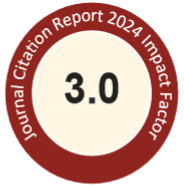Keywords
Triple-negative breast cancer, proline dehydrogenase, epigallocatechin-3-gallate, patient-derived xenograft
Abstract
Triple-negative breast cancers (TNBCs) lack specific targeted therapy options and have evolved into highly chemo-resistant tumors that metastasize to multiple organs. The present study demonstrated that the proline dehydrogenase (PRODH) mRNA level in paired (tumor vs. normal) human breast tissue samples (n=234) was 6.6-fold greater than normal cells (*p=0.021). We established stable PRODH-overexpressing TNBC (HS578T) cells, and the malignant phenotypes were evaluated using soft agar colony formation and Transwell migration assays. The results demonstrated that PRODH induced epithelial-mesenchymal transition in cancer cells and increased cell proliferation. The present study found that the tea polyphenol epigallocatechin-3-gallate (EGCG) significantly inhibited PRODH and its regulated proteins, such as alpha-smooth muscle actin (alpha-SMA) expression in TNBC cells. These findings support the targeting of the PRODH signaling pathway as a potential therapeutic strategy in preventing cancer cell metastasis. The patient-derived xenograft (PDX) mouse model is highly relevant to real human tumor growth. We established a TNBC-PDX (F4, n=4 in each group) mouse model. The PDX mice were treated with EGCG (50 mg/kg), and the results indicated that EGCG significantly inhibited PDX tumor growth (*p=0.013). These experiments provide additional evidence to evaluate the application of PRODH as a clinical therapeutic therapy, especially in TNBC patients.
Recommended Citation
Lee, Wen-Jui; Cheng, Tzu-Chun; Yen, Yun; Fang, Chia-Lang; Liao, You-Cheng; Kuo, Ching-Chuan; Tu, Shih-Hsin; Lin, Li-Cheng; Chang, Hui-Wen; Chen, Li-Ching; and Ho, Yuan-Soon
(2021)
"Tea Polyphenol Epigallocatechin-3-Gallate Inhibits Cell Proliferation In a Patient-Derived Triple-Negative Breast Cancer Xenograft Mouse Model Via Inhibition of Proline-Dehydrogenase-Induced Effects,"
Journal of Food and Drug Analysis: Vol. 29
:
Iss.
1
, Article 9.
Available at: https://doi.org/10.38212/2224-6614.3230
Graphical Abstract
Creative Commons License

This work is licensed under a Creative Commons Attribution-Noncommercial-No Derivative Works 4.0 License.


Abstract Image